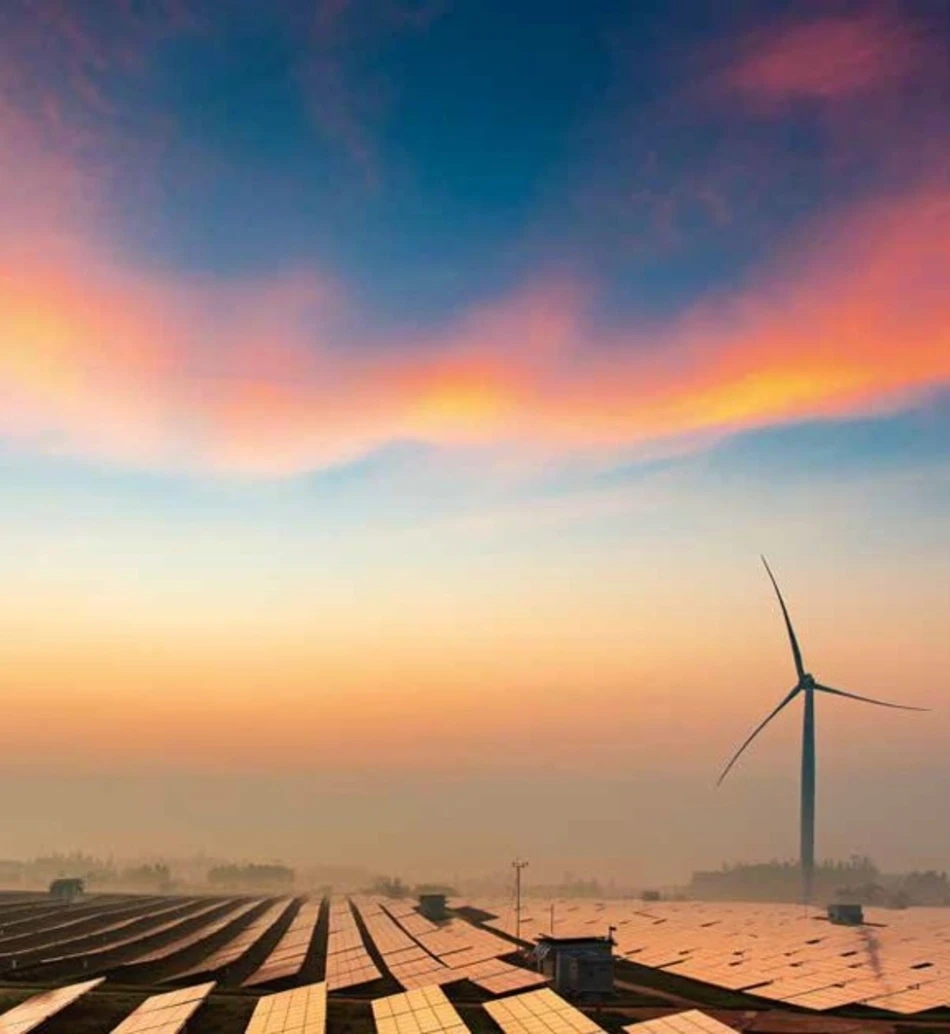ENERGY TRANSITION IS NOT AN OPTION

Interview with Dr François Vuille, an expert who helps governments, institutions and companies understand the issues and seize the opportunities related to energy transition.

François Vuille (PhD) is the Development Director of the Energy Competence Centre at the Swiss Federal Institute of Technology. He is in charge of research, lecturing and business development. He is also an expert member of a number of Swiss and international committees and boards in the field of energy. François Vuille is the author of two major reports commissioned by the International Energy Agency, of over 30 scientific articles as well as two books on energy transition. He is also the founder of two technology companies Softcar (electric mobility) and Proxipel (bioenergy).
François Vuille, how would you define energy transition?
The definition varies depending on the region, but the idea remains essentially the same. It means a transition from the current global model – energy production heavily dominated by fossil energy, complimented by some renewable energy – to the reverse situation by 2050. In some countries, such as Switzerland, it is associated with phasing out nuclear power, even if it is only a minor contributor of greenhouse gas emissions. In any case, energy transition implies reducing energy waste and using as much renewable energy as possible.
Is the aim to limit global warming?
Indeed! The aim is to keep it below the threshold of +2°C above the mean temperatures before the industrial revolution. This requires massive reduction of the production of greenhouse gas emissions. However, energy transition is also seeking to reduce pollution and to increase energy independence.
For a long time, people kept saying there would be no chance for renewable energy to become dominant, unless it becomes eco- nomically more competitive. Have we reached the inflection point?
It depends on the context and the technology. Renewable heat is competitive: you can heat with wood pellets for the same price as with a fossil-based resource. As for electricity of renewable origin, it is also becoming increasingly competitive. By the way, currently, the cheapest kWh in the world is solar (2.9 US cents in hot countries) and prices keep decreasing. We can say in general that for private households, that can use their own production, investing in renewable energy is already profitable.
In terms of investments, a turning point was passed in 2016…
Indeed: for the first time, there were globally more investments in renewable energy than in fossil fuel. At the same time, there is massive withdrawal of funds – trillions of dollars – from fossil energy production infrastructures.
Also last year, almost 90% of new energy resources used in Europe were renewable…
…it is because fossil resources are less and less available. If we want new resources, we must look for renewable energy! Even though there is much more investment in renewable energy, it only represents about 12-13% of the global energy mix. At the same time, fossil fuel consumption continues to increase, especially in countries with strong industrial growth, for which renewable energy is not sufficient. Therefore, several years will be necessary before a switch-over.
Is technological innovation a success factor in this transition?
Innovation was necessary to develop technologies for new renewable energy that are much more high-tech than traditional energies. More innovation will be required in order to continu- ously improve their energy efficiency. Clean tech is a dynamic growth sector in which thousands of companies are active worldwide (Editor’s note: see the other special feature articles). Nevertheless, energy transition is already perfectly possible with the existing technologies.

Photovoltaic power plant (Jiangsu Province)
So, innovation is required in other fields…
Considerable innovation will be necessary in legislation and market systems The current market is totally biased, it does not provide for natural integration of renewable energy or certain energy efficiency solutions.
How come?
External costs of fossil energy (in particular, the cost of global warming) are not included in their price. If they were, they wouldn’t be competitive at all. Electricity from coal, for instance, would cost between 10 and 15 cents per kWh and not the current 3 cents. The idea of a levy on carbondioxide has already existed in some regions, but it is difficult to implement on a global scale. The other unfair advantage of fossil energy is that it is subsidised all over the world, much more than renewable energy: 500 billion dollars per annum versus 100.
Has market correction, namely in the electricity market, progressed?
A number of market models have been tested in USA, France and Italy… However, it is obvious that it is not possible to change rapidly from a system that has been in place for a century and that has been working very well. It is a vast project in a sector that is known for being conservative.
What benefits energy transition could bring to a country?
If a country decides to tackle the issue of reducing carbondioxide emissions on its own, it would not result in anything significant, since it is a global problem. However, working on energy transition could have enormous national benefits! Firstly, by reducing energy dependence on import. Our economies are critically dependent on secure supply. Yet, gas and petrol resources have been decreasing, while our economies have been increasingly dependent and there has been a growing instability in exporting countries. Failure of supply is a catastrophe for a country and its economy, costing rapidly billions of dollars. Investing locally in renewable energy is good for employment, for the economy and for secure supply.
Have there been any cases of failure of supply?
Some major catastrophes with low media exposure, that could have had critical consequences, have been narrowly avoided. Even in highly developed countries, such as USA and Switzerland.
Any other benefits on a national scale?
Decreasing public health costs. In China, South America, India and other countries, pollution from hydrocarbon combustion in downtown areas has generated huge social costs, much higher than what measures to avoid them would entail.
China has announced its intention to increase its solar energy production by 40 GWh per annum…
…this is colossal: the equivalent of the production of 8 nuclear power plants! The Chinese have also installed more wind turbines than the rest of the world. China has definitely taken the lead in renewable energy.
As an expert, are you optimistic? Do you think the world will manage a successful energy transition?
I have no doubts whatsoever regarding a successful energy transition. It will happen out of necessity and future generations will benefit from it. However, I have huge doubts about a successful fight against global warming. Urgent action is needed, but given the speed at which things change, I think we will exceed 2 degrees of global warming. Therefore, we will have to get used to natural catastrophes with more severe consequences, as well as to living in Switzerland without glaciers.


